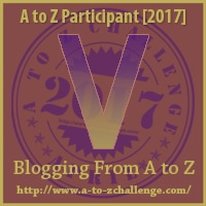 How do I know God is real? I've seen miracles that can only be attributed to Him. Nothing like what Ezekiel experienced when dry human bones in a valley were brought to life, but close! Valley of Dry Bones Ezekiel 37:1-14 Ezekiel was transported By the Spirit of the Lord To a valley filled with bones That he and God explored. The bones were dry and scattered With no life that could be found. God asked his priest-turned-prophet, “Can these bones rise from the ground?” “You alone can answer, Lord,” Was Ezekiel’s quick reply. Then God said, “Speak this message, “Dry Bones, get up and rise!’” And then a noisy rattle Echoed up from valley depths As bone attached to bone, And muscles formed with flesh. Then God asked of his prophet, “Speak out to Earth’s four winds: Breathe life into these bones So they may live again.” So Ezekiel spoke the message, And breath filled up those bones, And an army of new men Arose like Israel’s clones. They said to one another, “We’ve become so dry and old. All hope is gone; our nation’s dead, Our very life’s grown cold.” Then God told his great prophet, “Tell the people what I’ll do. I’ll open graves of exile And make everything brand new.” “And when Israel is restored, My people will proclaim: ‘This was from the Lord! Our nation’s been reclaimed!’” From . . . And a Poem, Too by Kathy Mansfield
0 Comments
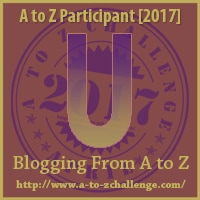 The Letter U for the #AtoZChallenge is Unity, specifically unity in the Universal Church. With so many denominations, the church can seem at odds with itself, particularly to non-believers. As Christians, we must work to display the unity that binds us together: belief in salvation through Jesus Christ and obedience to his Word. Courage of the Church The courage of the Church Is conviction steeped in truth, Shared with love to others And developed from our youth. That courage is developed By meeting Jesus every day And seeking out our brothers Who will lift us up and pray. Like Peter, Paul, and John, Our witness should be brave In obedience and in unity To the One by Whom we’re saved. 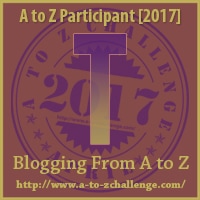 The "lingo" of Christianity can be difficult for non-Christians to understand, but some of the big words and terms can even be hard for Christians to fully grasp. I like to call them Ten-Dollar Words, and I hope my poem helps you to understand a couple of those very important, but difficult to understand, words that pastors and teachers toss about. Ten-Dollar Words Sanctification, propitiation-- Big ten-dollar words-- If you grew up in a Bible church, They’re words you must have heard. Sanctification simply means Living out your faith, Growing more like Christ As you journey through your days. Propitiation simply means Atonement for our sins Resulting from the sacrifice Of Jesus for all men. Knowing those big words Won’t change how we should live, But knowing what they mean Reminds us why we live. From . . . And a Poem, Too by Kathy Mansfield 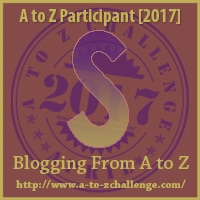 "Second Fruits" is one of my favorite poems. You don't know what Life will throw you and how you will respond, but I'm a firm believer in second chances after a less than stellar response to things we encounter. I also believe that if we have a strong foundation early in life, we will return to those roots that can help us to flourish once more. Second Fruits Matthew 7:17-20 The tree was watered, It felt the sun, Its roots grew strong-- A life begun. When fruit appeared, The tree stood tall, A sign of health To one and all. But then the storms Of life unfurled-- First drought, then rain, Then winds that swirled. For a season No fruit was seen, Withered and brown, Not healthy green. But underground Were roots held fast By care and love From seasons past. And once again The sun came down To shine upon The fertile ground. New fruit was seen, Brighter and sweet, Having survived Seeming defeat. 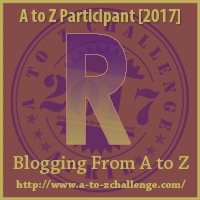 Rahab, a prostitute, is an unlikely ancestor to Jesus Christ, but her story gives hope to all who have chosen a fallen path. No one's past prevents him or her from a future of hope in Christ. Read Rahab's story in today's #AtoZChallenge post. Rahab Joshua 2:1-24 Matthew 1:5 Joshua sent two spies To the city of Jericho To find out more about A potential battle foe. But someone told the King, “There are spies here in the land; They’re in the house of Rahab, We need to know their plan.” The King sent word to Rahab, “Bring out the Israelites!” She responded, “They aren’t here-- Perhaps they’ve taken flight.” In truth, the men were hidden Under flax on Rahab’s roof. She knew the God they worshipped Was the One who spoke the Truth. “I know your God is mighty, I’ve heard all the things he does. I’ve given you protection, Now give the same to us.” The Israelites agreed When they returned to Jericho They’d look for Rahab’s window-- A scarlet rope hung below. Due to Rahab’s faithfulness Two spies were saved that day, And through the line of Rahab Came the One who is the Way. From . . . And a Poem, Too by Kathy Mansfield  Queen Esther is the subject for the Letter Q in the #AtoZChallenge. Read about the Godly choice she made that saved her people. Esther King Xerxes loved Queen Vashti, But she defied the King’s command; Her banishment made the way For saving Jews across the land. King Xerxes sought another To wear the Persian crown, Throughout the land were chosen Young girls of all renown. Esther was a Hebrew Who lived with Mordecai, Chosen by the royal court, She caught King Xerxes’ eye. But Haman was an Agagite And had a grudge with all the Jews, He made a plan for Xerxes That would cause the Jews to lose. Though Esther was the Persian Queen, Her lineage wasn’t known, Even Xerxes who so loved his queen Was oblivious on his throne. When Mordecai refused to bow, Haman set his plan in place. Xerxes signed the order To end the Jewish race. Mordecai warned Esther Of the plan that would unfold, Through Hathach he told Esther, “You must be brave; you must be bold.” “Perhaps you were made queen For such a time as this. If you ignore the role you play, You’ll surely be remiss.” So Esther turned to God In fasting and in prayer And asked of Mordecai That the Jews, as well, prepare. Then Esther went to Xerxes, And through clever words and deeds, She turned the course in play To preserve the Chosen’s seed. Now Haman is no more, But God’s people grow in love, Thanks to Mordecai and Esther And providence from above. From . . . And a Poem, Too by Kathy Mansfield 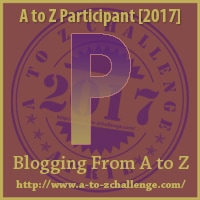 Lots of words in today's poem that begin with the Letter P for the #AtoZChallenge: Pharisee, preach, pray, perfect, pious — can you tell I like alliteration? Pharisee Friend “Why do you believe what you do?” A friend asked me the other day. “All I hear is vitriol From those who preach and pray.” I thought about my answer, Not wanting to offend, But needing to be faithful In a world that’s filled with sin. “I believe what the Bible says – That God condemns such things. I know that I’m not perfect; I rely on grace God brings.” I saw the way she briefly looked And knew what went through her mind: “I’ve seen you sin, my pious friend, Do you think I’m completely blind?” How do I explain myself To someone who’s seen me sin? To her I’m just a Pharisee She tolerates as a friend. God, help the life I’ve journeyed Be an example of your grace, Let others see your mercy, Not the sin I once embraced.  Omnipotence, omniscience, omnipresence — big words to describe a big God. But, what do they all mean? Use the poem below to remember these important attributes of God as the #AtoZChallenge continues with the Letter O. Omni-Everything Omnipotent means “all powerful,” God’s majesty displayed. Omniscience means “all knowing,” God sees each and every day. Omnipresence means “God everywhere,” He finds us where we are. Omni-benevolent means “all good,” Only God can reach that bar. All powerful, all knowing, God everywhere, all good – He’s “Omni-everything” – And through faith I’ve understood. 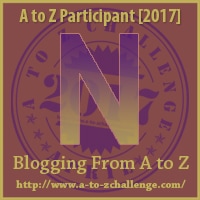 Did you make a New Year's resolution 4 months ago to read the bible through this year? Did you bog down somewhere around Leviticus? You aren't the only one! Others feel your struggle, too. Read about a different approach for next year in the poem below as the #AtoZChallenge continues with the Letter N. New Year’s Resolution My New Year’s resolution Was to read the Bible through, Both Old and New Testaments – Maps, concordance, too. Day one went really well – The story of creation, Followed by the ark, In my best translation. In those first few weeks I read of Moses and the law, The Ten Commandment tablets And the blessings Israel saw. But, along about day thirty, Leviticus came in view, All those rules and sacrifices And offering guidance, too. Instead of easy stories, I was faced with rules of old, And my New Year’s reading challenge Started growing pretty cold. So, here I am, once again, Stalled before Book Four, Maybe when the next year comes, I’ll read a little more. But, here will be my plan From day one of that new year: Start with Revelation And work backward from the rear. And maybe I might see By looking at the end The value of Leviticus And the message that it sends. From . . . And a Poem, Too by Kathy Mansfield 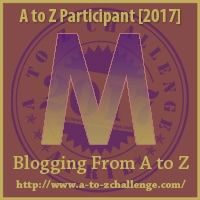 Letter M of the #AtoZChallenge brings us to a little known Old Testament king: Melchizedek. What better time than Easter to learn about someone who foreshadowed the coming Christ. Read about Melchizedek in Genesis 14, and then find him mentioned again in Hebrews. Melchizedek Genesis 14 Hebrews 5, 6, 7 Melchizedek, King of Salem, And priest of God Most High, Greeted Abram after war And brought him bread and wine. Melchizedek gave a blessing To Abram from the Lord; Abram gave a tenth of goods His victories had restored. Melchizedek is remembered As resembling God’s own Son; He wasn’t Who would come, But an example of the One. Jesus is the final priest, Atonement for our sins, And Melchizedek was there As the story all begins. from . . . And a Poem, Too by Kathy Mansfield |
AuthorKathy Mansfield Archives
December 2022
Categories |

 RSS Feed
RSS Feed
